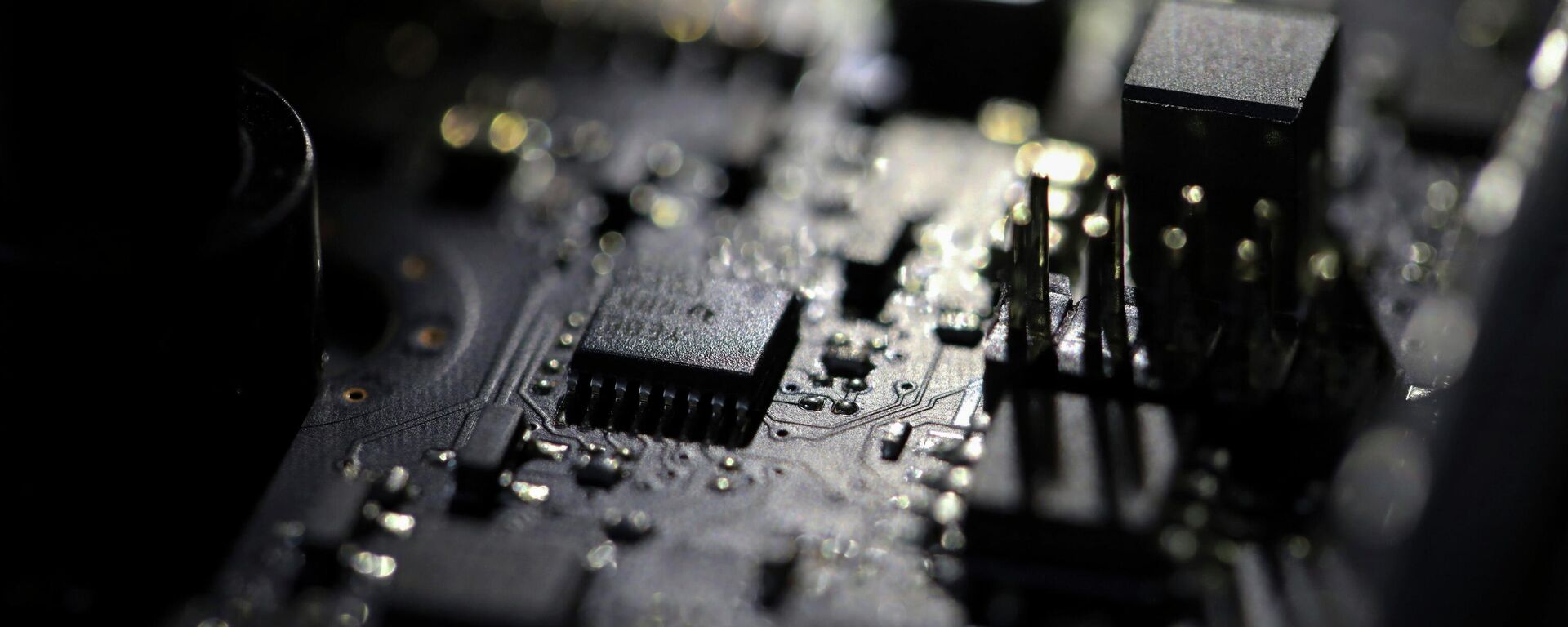https://sputniknews.in/20231128/does-increased-investment-by-iphone-maker-foxconn-threatens-make-in-india-5618893.html
Does Increased Investment by iPhone Maker Foxconn Threaten 'Make in India'?
Does Increased Investment by iPhone Maker Foxconn Threaten 'Make in India'?
Sputnik India
After iPhone maker Foxconn announced a $1.6 billion investment in India, one tech expert, while talking to Sputnik India, expressed that this could pose a... 28.11.2023, Sputnik India
2023-11-28T18:09+0530
2023-11-28T18:09+0530
2023-11-29T11:27+0530
science & tech
india
delhi
new delhi
apple inc.
cutting-edge technology
make in india
business
tata
vietnam
https://cdn1.img.sputniknews.in/img/07e7/02/14/939509_0:300:5760:3540_1920x0_80_0_0_5b6f3e273e8278d8ab3ccd2ce7c7c793.jpg
With an aim of expanding its footprints in India, iPhone maker Foxconn has announced another investment of $1.6 billion in the country for construction work.The announcement was made in an exchange filing in Taiwan on late Monday night. However, no details were disclosed rather it was just said that the investment was for “operational needs”.The company’s spokesperson denied commenting on where the new facilities would be or what they would build.Sputnik India reached out to a tech expert, who explained the possible impact of the investment in the country as well as the risks for Indian companies.Talking about the benefits of the investment by Foxconn, Manish Rawat, Semiconductor Analyst at tech advisory firm TechInsights told Sputnik India that the expansion of the iPhone maker in the country holds potential for growth and innovation in the telecom sector as it could foster a dynamic market and enhance competitiveness leveraging global expertise.As of now, Foxconn owns 75-80 per cent of the iPhone production in India. However, India’s one of the largest conglomerate Tata Group had sealed a deal to acquire Wistron’s iPhone assembly plant in the country with an aim to double iPhone assembly within two years.He further stated that the local supply chain dynamics could also be affected, leading to heightened competition and increased input costs.When asked that if foreign companies like Foxconn continue to expand their footprints in India, will India companies look for alternatives like Vietnam, the tech expert said that the expansion of foreign companies in India, typified by Foxconn, creates a nuanced situation.Talking about the initiatives that the government should take to boost the investments by Indian companies, Rawat said that the government must prioritize stable and predictable regulations while avoiding frequent regulatory changes.He also emphasised on encouraging research and innovation in order to establish India as a centre for cutting-edge technology.He, however, feels that despite challenges, Foxconn's expansion offers growth opportunities, emphasizing the need for adaptation and leveraging strengths in India's evolving telecom landscape.
https://sputniknews.in/20230921/indias-global-influence-will-surge-if-it-excels-in-chip-manufacturing-expert-4363200.html
india
delhi
new delhi
vietnam
taiwan
Sputnik India
feedback.hindi@sputniknews.com
+74956456601
MIA „Rossiya Segodnya“
2023
Rahul Trivedi
https://cdn1.img.sputniknews.in/img/07e6/0c/13/136500_0:0:628:627_100x100_80_0_0_72097ff894c7446b70d2efafcb719720.jpg
Rahul Trivedi
https://cdn1.img.sputniknews.in/img/07e6/0c/13/136500_0:0:628:627_100x100_80_0_0_72097ff894c7446b70d2efafcb719720.jpg
News
en_IN
Sputnik India
feedback.hindi@sputniknews.com
+74956456601
MIA „Rossiya Segodnya“
Sputnik India
feedback.hindi@sputniknews.com
+74956456601
MIA „Rossiya Segodnya“
Rahul Trivedi
https://cdn1.img.sputniknews.in/img/07e6/0c/13/136500_0:0:628:627_100x100_80_0_0_72097ff894c7446b70d2efafcb719720.jpg
iphone assembling india, foxconn, iphone maker foxconn, foxconn to invest $1.6 billion in india, semiconductor analyst, tech advisory firm techinsights, tata group, iphone manufacturing in india, indian companies, iphone production
iphone assembling india, foxconn, iphone maker foxconn, foxconn to invest $1.6 billion in india, semiconductor analyst, tech advisory firm techinsights, tata group, iphone manufacturing in india, indian companies, iphone production
Does Increased Investment by iPhone Maker Foxconn Threaten 'Make in India'?
18:09 28.11.2023 (Updated: 11:27 29.11.2023) After iPhone maker Foxconn announced a $1.6 billion investment in India, one tech expert, while talking to Sputnik India, expressed that this could pose a threat to Indian companies.
With an aim of expanding its footprints in India, iPhone maker Foxconn has announced another investment of $1.6 billion in the country for construction work.
The announcement was made in an exchange filing in Taiwan on late Monday night. However, no details were disclosed rather it was just said that the investment was for “operational needs”.
The company’s spokesperson denied commenting on where the new facilities would be or what they would build.
Sputnik India reached out to a tech expert, who explained the possible impact of the investment in the country as well as the risks for
Indian companies.
Talking about the benefits of the investment by Foxconn, Manish Rawat, Semiconductor Analyst at tech advisory firm TechInsights told Sputnik India that the expansion of the iPhone maker in the country holds potential for growth and innovation in the telecom sector as it could foster a dynamic market and enhance competitiveness leveraging global expertise.
“Foxconn’s collaboration with Indian firms may yield cost-effective products, boosting global competitiveness. However it poses challenges for local companies as the increased competition and pricing pressure may emerge due to economies of scale,” Rawat stated.
As of now, Foxconn owns 75-80 per cent of the iPhone production in India. However, India’s one of the largest conglomerate
Tata Group had sealed a deal to acquire
Wistron’s iPhone assembly plant in the country with an aim to
double iPhone assembly within two years.
“Foxconn's expansion in India poses a significant challenge to Tata Group, sparking intensified competition in contracts, market share, and skilled labour. This may strain Tata's profit margins, prompting strategic adjustments,” the semiconductor analyst said while highlighting the challenges Tata Group might face due to increased investment of Foxconn.
He further stated that the local supply chain dynamics could also be affected, leading to heightened competition and increased input costs.
“To stay competitive, Tata must invest funds in technological innovation, automation, and product development. Navigating regulatory environments, building government relations, and adapting marketing strategies is imperative. Tata must seriously consider geopolitical issues, such as trade disputes, arising from Foxconn's development in this global economic environment,” Rawat opined.
When asked that if
foreign companies like Foxconn continue to expand their footprints in India, will India companies look for alternatives like Vietnam, the tech expert said that the expansion of foreign companies in India, typified by Foxconn, creates a nuanced situation.
“On the one hand, it brings opportunities such as job creation and economic growth, but on the other hand, it poses challenges for Indian companies, leading them to explore alternatives like Vietnam due to heightened competition for resources,” he said adding that concerns about regulatory impact, market dynamics, and supply chain resilience may drive domestic companies to consider other markets.
Talking about the initiatives that the government should take to boost the investments by Indian companies, Rawat said that the government must prioritize stable and predictable regulations while avoiding frequent
regulatory changes.
“Along with infrastructural expenditures, streamlining bureaucratic procedures and cutting red tape are essential for increasing the ease of doing business. Tax measures that are favourable to investors, such as reducing corporation taxes, are crucial to improving India's appeal. A competitive workforce necessitates a focus on education and skill development, particularly in fields that need specialized knowledge,” the expert stated.
He also emphasised on encouraging research and innovation in order to establish India as a centre for cutting-edge technology.
“To develop a complete plan for economic growth, other important strategies include encouraging foreign direct investment, sector-specific legislation, global trade alliances, financial incentives, improving corporate governance, and supporting small and medium-sized businesses,” Rawat said.
He, however, feels that despite challenges,
Foxconn's expansion offers growth opportunities, emphasizing the need for adaptation and leveraging strengths in India's evolving telecom landscape.



